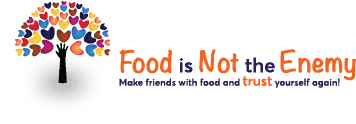Similarities of Eating Disorders
Similarities of Eating Disorders
There is a lot more similarities to the various eating disorders than there are differences. In fact, the one real differences is the way you are with food.
For example, if you have anorexia, you restrict food intake often to an extreme. However, someone who is bulimic will eat large amounts of food and then vomit it back up. A binge eater will often eat well past being full more often than not.
Each eating disorder carries it’s behaviors around food and how you manage food intake and the fear of weight gain.
Yet, each eating disorder type is riddled with fear of weight gain, obsessive thinking about food and weight, a strong tendency to hide the symptoms and shame about what’s happening. In each, the symptoms will worsen over time until you get help. In fact, most of what you will try to do to fix it will only make it worse. Your weight is likely to change often and your sense of “goodness” or “badness” will depend upon how you eat, what you eat, how often you eat, and how often you think about food. You will lose more and more of who you are and your eating disorder “voice” will get louder and take over.
Underneath every eating disorder is a person who feels ashamed, not good enough, not lovable enough, not worthy.
The cause of these feelings of less-than can stem from a variety of places. Certainly, society plays a role but also your family messages, personality tendencies, such as perfectionism, and other factors.
Whatever it is, the eating disorder is a way to “fix” it and/or to hide from those feelings.
So no matter what eating disorder you may have, getting help to face your feelings and to find new ways of living a life is at the heart of recovery. It’s for this reason that getting help is key! If you could have felt better by dieting, restricting food, binging, vomiting, over exercising, obsessing about your weight, you would have felt a lot better by now!
But those things don’t work and they never will work. You may be completely lost about what to do to get better. There are people out there that are not lost and can help you find the way out! Some have found the way out themselves. You need help and it’s okay to need help. We all do. You don’t have to suffer alone and in silence and shame. Get the help you need! Now.
